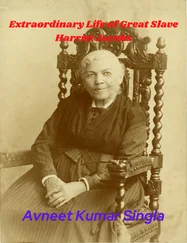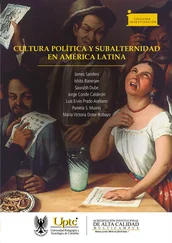The March weather seeped deeper into Melanie’s fingers as the church grew colder. She hoped that the mass of people would soon generate some body heat, even if it was the odorous variety she knew to expect on the metro. The concertmaster — or kapo, as they called him — took the stage, his shoes click-clacking across the floor like a tap dancer’s. Applause. He pointed to the principal oboe, who played a long A with which they all joined in to tune their instruments. Or un-tune them. Melanie was pleased with her tone and with the acoustics of the room. The kapo sat and noisily adjusted his chair until the conductor bounded in from off-stage. He climbed the podium to wild applause. Melanie would have liked to insert her violin bow into his rectum. The public didn’t realize that this jerk’s career leading an orchestra began only after he failed to demonstrate any affinity at all for composition, the violin, or even the piano — the instrument that made his mother famous throughout Europe after the war. Her name alone landed him and his older brother positions of tremendous importance within the hermetically sealed world of Hungary’s musical establishment. Tellingly, no other orchestra had even considered him for as much as an assistant music directorship before now. His awkward, constipated-orangutan style and horrendously flawed ear annoyed Melanie to no end.
He stiffened his back and with a mild frown looked them over without making eye contact. He did nothing to establish a rapport with his orchestra. Nothing. They were strangers to him, despite the countless hours spent following his orders. A gesture as simple as a smile or even a nod would have put them — or at least it would have put her —squarely on his side. Instead, he adopted an adversarial posture. That thin sneer communicated something to the effect of, “Don’t you dare fuck up the most important concert of my stillborn career.” He raised his baton to begin the national anthem.
Ferenc Erkel’s slow, plodding dirge was easily the world’s most depressing hymn of self-celebration. The orchestra came in unevenly, so several of the violins rushed to find their spots. Every musician made mistakes on stage from time to time; the correct thing to do in most instances was to skip a few measures and follow along with the sheet music, with eyes only, until finding one’s place and jumping back in. That these guys decided to play all the notes faster as a way of catching up to the rest of the orchestra only illustrated Melanie’s concern about the level of amateurism she contended with every day at rehearsal. They played faster, but that only made the discord more apparent. If the audience noticed the initial gaffe, it didn’t let on. Their esteemed conductor, however, grew visibly agitated. The music fell out of skew. Everything wobbled, unsure, for what felt like an hour. A train wreck was imminent. Panic grabbed hold of the reeds, who started to play faster to match the errant violins, until finally the timpanist took control of the situation — a responsibility that should have fallen squarely on the shoulders of the man with the baton — and leaned in a bit harder to establish a beat by which they could all correct themselves. It fell back into place just in time for the bleak finale. Melanie felt the music snap together more than heard it. From her seat she had a lousy view of the church and even, mercifully, of the conductor, but when they finally got into sync, the sonority of that room gave her chills. It was frigid to the point of disrespect for the musicians and audience, but the pinpricks up and down her arm derived not from the temperature, but from the immediately visceral sensation of hearing those gloriously melancholy tones reverberate through the eaves, of feeling Beethoven beside her. Within her. Locking in with other players, with a receptive audience, it was absolute joy. She even loved the usually tedious counting and keeping of time between her parts.
The applause hit them, a hot shower of jubilation and nationalistic pride. The conductor glowered, and then turned to the cheering crowd with the same thin smile. When he bowed in gratitude, his back to the orchestra, one of the tuba players cut loose with a sharp oompah. The sound was unmistakable. The tubist pretended it was an accident, that she was clearing the spit valve and it went off in her hands. The orchestra members couldn’t reign in their laughter, their relief. That noise had unified them in direct opposition to their conductor. They staged a musical revolt, on Independence Day no less, and the conductor could only watch, dumbstruck as he lost his tenuous grip on an insolent ensemble. The tubist would certainly be fired. No question about it.
The raucous whooping and hollering wasn’t simply the audience cheering the entrance of the soloists. It was that, but it was also the orchestra, up on the sanctuary where the altar should have been, laughing at something as inane and banal as a fart joke — a fart joke at the expense of their esteemed conductor. And that was where, less than a month later, the bestselling DVD recording of the event would begin. With this rambunctious laughter. With the conductor’s face glowing bright pink in rage. With a shot of audience members who were unaware of what they had just witnessed and of what they were about to witness.
6.
The three soloists strutted out, unaware, into a musical minefield: soprano Erzsébet Holló, mezzo-soprano Judit Szirmay, and contralto Sylvia Péntek. Their dresses glittered, respectively, green, white, and red. Tenor László Nógrádi, the chansonnier, followed behind. The crowd erupted even more. The conductor, overcome with game-show host conviviality, lasciviously kissed the ladies and pumped Nógrádi’s hand. Without room for sets, which were still under construction anyway, or for proper dressing rooms for costume changes, they performed a concert version of the opera. The singers sat at the front of the stage, facing the audience, except for Nógrádi, who remained standing.
Set in rural mainland China, The Golden Lotus used the practice of foot binding as a metaphor for the experience of the common man under what Harkályi described in the score’s endnotes as the “corrupting sway and influence of capital.” It had taken him thirty years to complete. He derived the title from the ideal shape that a woman’s feet could attain by binding. According to the program notes, the wrapping of a young girl’s feet — which typically started at age three or four — upheld patriarchic, feudal-era ideas of beauty. Small feet represented nobility even among peasants and raised one’s social stature and prospects of good marriage. A mother would use a twenty-foot-long ribbon to adhere her daughter’s toes to the underside of the foot, often crushing the bones in the process. She then sewed the ribbon ends together to prevent loosening and crammed the child’s feet into shoes sometimes no more than a few inches long. As the flesh deteriorated, over time the stench of blood and pus could become overwhelming. When the bandages were drenched, the mother would scrape away the putrid flesh, tighten the ribbons further, and subject the girl to smaller and smaller shoes. The process lasted up to three years. The libretto described the sensation as something like walking through a fire. Harkályi, from what Melanie had read, also intended it as a jab at American decadence. Apparently the obsession with wealth and status not only hamstrung the nation’s natural spiritual growth, but also brutally disfigured Americans in the process.
Nógrádi’s spoken, chant-like introduction, which was in German, warned the audience and television cameras of the horrendous events they were about to witness, of the bondage to which people were subjected to in the name of beauty. In a remote Chinese village, Mother (Szirmay) defied her family, particularly Grandmother (Péntek), by refusing to bind the feet of her own infant Daughter (Holló). Mother and Daughter became objects of public scorn. Their shame cast an impenetrable shadow over the family’s fortunes. After a minute and a half, a solo cimbalom came in to accompany Nógrádi. It evoked the timbre of a pipa. A strain of Asian music ran throughout the entire piece, but it carried a distinctly Magyar tone. The cimbalom remained a fixture of every Hungarian folk music ensemble and the associations with the local Gypsy music were unmistakable to the native audience.
Читать дальше












